Hey guys, welcome back to the Dr. Cliff AUD vlog. This is log number 135. And today I had a whole bunch of different stuff to talk to you guys about from the joint venture that I started with another company to the podcast, The Dr. Cliff Show that we started that was live this past Wednesday episode. Number one, if you haven't checked it out, go ahead and do so on my YouTube channel. But because the final ruling of the over-the-counter hearing aid act got issued this past week, I feel like it's a good idea for me to kind of clean up some misconceptions because a lot of individuals out there are totally misunderstanding what's going on with over-the-counter hearing aid. So I'm gonna clean that up today or clear that up today. But before I do, if you could do me a huge favor, click that light button, it really helps out my channel.
And if you are not yet subscribe, go ahead and hit that subscribe button with notification bell. So you get notified when I post these videos. Okay. So let's go back down to the drawing board. Now I've done a number of videos on over the counter hearing aids. All you have to do is search for over the counter hearing aids on my YouTube channel. And you'll see a lot of these videos come up. A little while back, of course, the FDA issued the over the counter hearing aid, initial proposed guidelines, and then everybody got to comment on those. And then they came back and reviewed all that and made some changes to the final guidelines. To be honest with you, the final guidelines are very similar to what the initial guidelines were, and there are some changes and I'll get into those changes in more detail in further videos that I do.
And we're actually gonna be talking about that in episode two of the Dr. Cliff show with me and Dr. Rachel Cook. But the, the number one thing that is a misconception that people are having about over the counter hearing aids is that it's going to make all hearing aids cheaper. This could not be further from the truth over the counter. Hearing aids are gonna be a completely different category. Now, those hearing aids will be typically lower cost, but when you really think about it, the current available stock of direct to consumer hearing aids, those are gonna be the first hearing aids that are considered over the counter. And those hearing aids range anywhere from $500 for a pair of hearing aids up to like $3,000 for a pair of over the counter hearing aids. And those are naturally gonna filter into meeting these over the counter requirements.
Their requirements are not that crazy. When you look at a lot of the different products that you can buy out of China and just start reselling here in the United States market. Yeah, they'll have to be essentially vetted to some degree that they're actually meeting these guidelines, but a lot of those are gonna meet the guidelines. And you know, the thing is here is that, so there's gonna be other devices that come out and hit the market that are gonna be from some of the major manufacturers. And these are probably gonna be some of the better devices out on the market, but even those are not going to be dragging down the cost of prescriptive level, hearing aids. The same companies are going to be making the over-the-counter hearing aids as they are the prescriptive level hearing aids. And they're not gonna wanna undercut themselves in this equation.
They're still gonna wanna sell those devices for a really nice markup to make a good profit that leads them into creating better technology. So it is a good situation, but I don't think that people are actually going to see like, oh my gosh, now I can get any hearing aid for substantially less than what I could get it before. That is not going to be the case. You could even make the argument that prescriptive level hearing aids will go up in price for a couple of different reasons. Number one, if a lot of people leave their hearing care professional to go get over the counter hearing aids, the only way for that hearing care professional or that clinic to stay in business is for them to charge more to the patients that still have to come to them. So severe to profound levels of hearing loss, individuals who have difficult fits individuals who have no idea what they're doing of self fitting with hearing aids or any of that matter.
So that's one reason the re the second reason that pricing could either stay the same or go up is because if a lot of individuals start trying over the counter hearing aids and like, wow, this is great, but I feel like I still want some more, like, I want more benefit than what I'm getting with just these lower cost devices than this OTC category. They're gonna start filtering into audiology clinics to actually get fit with prescriptive level hearing aids, which is going to increase demand for prescriptive level hearing aids. And any time that you increase demand, typically pricing will go up inside of the service sector because you've got all these people. And they're like, well, shoot. If, if I've got a ton of people to serve, I'm gonna increase prices to kind of slow down the amount of people who come into me.
Now, I know that, that sounds crazy, but that is kind of how my clinic works. There are a lot of direct to consumer hearing aid companies out there right now. And a lot of those companies are my best referrers inside of my clinic. What I mean by that is people they go and they try these direct to consumer hearing aids are like, yeah, they're, they're okay. But I feel like I need something more. And they come in to see us. My prices don't go down because a lot of direct to consumer hearing aids have been hitting the market. And there's a lot of 'em out there right now. So to think that anything is gonna change from a price perspective from a prescriptive level hearing aid standpoint is just not realistic. Now, you know, I do think overall that over the counter hearing aids are good.
In fact, I've been a really in really big favor of over the counter hearing aids, because what is ultimately gonna happen is likely what happened in the eyeglass industry when reader glasses, like over the counter readers started making it to shelves inside of your grocery stores and inside of your gas stations, things like that, the optometry industry actually increased the amount of sales of prescriptive level glasses. Just like I was alluding to earlier with over the counter hearing aids is that once individuals kind of got a taste where like, oh, like, like I didn't realize that this could provide me with additional benefit. You know what? I kind of want more benefit than this, or I didn't realize I had such a bad vision loss. I should actually go get this checked out from my optometrist. They go into an optometrist and actually dispense them prescriptive level eyeglasses.
And it was a major boon for the eyeglass industry. And the, the truth is, is that the eyeglass industry fought against like, they did not want readers to be over the counter. And, and, and, and I can understand why. So, you know, when you start to look at it from the perspective of a hearing care professional, an audiologist, the concern that we have is that individuals are gonna go by over the counter hearing aids, and they're not gonna get their hearing tested. There's gonna be certain medical conditions that will go undetected. And I know that there are critics out there that say, yeah, but the percentage of that is really low. Well, basically what the government is doing here by not requiring hearing tests is that they're like, you know what, we're okay with some people going undiagnosed with a serious medical condition involving their ears, because the vast majority of individuals would likely benefit from it.
So, you know, I, I get it. I mean, you want to benefit the vast majority, and then there's going to be certain individuals who just kind of get screwed over because they figure that, well, I can go get OTC hearing aids. I don't need a hearing test, a serious medical condition, like an acoustic neuro, a tumor growing on your auditory nerve ends up being there. And you never even know it. And before it's, until it's too late right now, you also have this other aspect of people trying hearing aids and not liking them, trying over the counter hearing aids and be like, you know what, this isn't really doing me any good. And what do they do instead of going to see a hearing care professional, they're just gonna say, oh, see hearing aids didn't work for me and they're gonna stop there. And that couldn't be further from the truth, right?
I mean, we know that a lot of individuals in prac in fact, 90 to 95% of individuals who have hearing difficulty actually would have hearing aids as being the best treatment option for them. But if you end up going and getting an overthe counter device, and there's gonna be a whole variety of different ones out there, some are gonna be good. Some are gonna be horrible, even though they do meet the spec the specifications to, to be considered an over the counter hearing aid. They're gonna go and try 'em and, and say that, see, these don't work for me, and then really they need to have hearing aids, but they just didn't have properly fit hearing aids. And that's really the other thing here is that at least in my clinic, and, and here's the thing I am biased for following best practices, I am biased in thinking that individuals should be treating their hearing loss to the highest level humanly possible, and that it comes across as rather insensitive to individuals who cannot afford that quality of care, or do not have access to that quality of care or both.
Right. And so, you know, from my perspective, it's that I really feel like individuals should be treated really, really well with hearing aids. Now I do view over the counter, is that stepping stone. I feel like we need something out there that people can test and try, and then find their way into a hearing care professional when the time is right for them. The, the other thing about this is a lot of these individuals are going to need help from a hearing care professional with these over the counter devices. So the way I see it is you're probably gonna be able to go and buy an over the counter hearing aid. If you have limited success or you need help with it, or there's, you know, repairs and maintenance that need to occur, you can take those devices into a hearing care professional. They could potentially charge you a fee to assist you with those devices, what they'll be able to do, who knows, but, you know, I don't know.
I mean, I, it, it's, there's a lot of unanswered questions with how this whole model is actually going to work. But I intend on getting into this model as well. One of the things that I was looking for in these this final guideline is that I want to be able to dispense devices online over the counter hearing aids online, because not only do I want to only dispense high quality over the counter hearing aids, I don't wanna lose my license for doing so, cause I'm not requiring a hearing test, but I also want to have that communication with the individual who is actually purchasing them and using them so I can make sure that things are going well. And if they're not going well, I can get them pointed to the right direction of someone who can actually help them or to a different device that actually might be better for them than the one that they purchased and thought was right for them.
And if this communication stays in the hand of the company's making the products, their answer to you, having difficulty is always like, oh, well, give it a little bit longer. See if it can see if it works better, if you use it for a longer period of time, cuz your brain takes time to adapt, which is like the biggest hog wash thing in the world. Like the brain adapts within 30 days. And it does not take you 90 to 120 days to adapt the hearing aids. I have some beef with other companies who dispense on that premise as well. But I digress. Let's get back to over the counter hearing aids. The other option for these direct to consumer over the counter hearing aid companies is that they're gonna say, oh, if that one doesn't work, just wait for our next product to come out, cuz that one will definitely work for you.
And it's just gonna be this whole, like them spinning their wheels to try to get you to continue to buy their products and stay in their ecosystem. But I want to assist individuals who want over the counter hearing aids and I want to continue providing them with information about what they can do to optimize their performance with their own OTC devices or to go into a hearing care professional if they need help or to graduate to a prescriptive level device. But you know, this over the counter hearing aid act, I am super, super, super happy that it has finally come out because now we can stop speculating on what it's ultimately gonna be. And approximately 60 days from now or 60 days from mid last week it's actually going to actually come into fruition and it will become finalized. And that's when everyone's gonna have to start complying to these new regulations.
and we've already seen that best buy is gonna get into the game of having like an experience center with all these over the counter hearing aids. And I'm just thinking, man, that is gonna be hilarious. I cannot wait to go in and experience that for myself and do like a review about that process. When you see, you know, a 19 year old kid who has no idea about hearing aids, trying to give information to someone who has hearing loss and is trying to determine which OTC device is right for them. But nonetheless, I don't wanna poke too much fun. I like best buy. But it'll just be interesting to see when you start taking these medical devices and putting 'em in the hands of a 19 year old or a 18 year old or a 17 year old to try to figure out what the heck to do with them as they read the box and try to tell you everything about that product, nonetheless.
again, I digress, but over the counter hearing aids are going to be coming out here really soon. It'll be interesting to see who the first technical like labeled OTC hearing aid is. Cuz as of right now, I'm not sure that there's one out there I'm reviewing a couple of different products that I think that might be like the official OTC hearing aid of Dr. Cliff. So stay tuned for that. I'm actually testing a different product this weekend that I've never tested before. And it seems really, really promising a product that's actually made here in the United States, which is positive because a lot of this stuff that you see out there right now is made overseas and it's just like super low quality. But nonetheless, that is really all I wanted to talk about today. I know that I just rambled like crazy. But it is what it is. Hopefully you enjoyed it. If you did make sure that you hit that like button and as always, I'll see you next week,
Resources:
Prescription or OTC Hearing Aids: Which is Right for Me?
Hey guys, welcome back to the Dr. Cliff AUD vlog. This is log number 135. And today I had a whole bunch of different stuff to talk to you guys about from the joint venture that I started with another company to the podcast, The Dr. Cliff Show that we started that was live this past Wednesday episode. Number one, if you haven't checked it out, go ahead and do so on my YouTube channel. But because the final ruling of the over-the-counter hearing aid act got issued this past week, I feel like it's a good idea for me to kind of clean up some misconceptions because a lot of individuals out there are totally misunderstanding what's going on with over-the-counter hearing aid. So I'm gonna clean that up today or clear that up today. But before I do, if you could do me a huge favor, click that light button, it really helps out my channel.
And if you are not yet subscribe, go ahead and hit that subscribe button with notification bell. So you get notified when I post these videos. Okay. So let's go back down to the drawing board. Now I've done a number of videos on over the counter hearing aids. All you have to do is search for over the counter hearing aids on my YouTube channel. And you'll see a lot of these videos come up. A little while back, of course, the FDA issued the over the counter hearing aid, initial proposed guidelines, and then everybody got to comment on those. And then they came back and reviewed all that and made some changes to the final guidelines. To be honest with you, the final guidelines are very similar to what the initial guidelines were, and there are some changes and I'll get into those changes in more detail in further videos that I do.
And we're actually gonna be talking about that in episode two of the Dr. Cliff show with me and Dr. Rachel Cook. But the, the number one thing that is a misconception that people are having about over the counter hearing aids is that it's going to make all hearing aids cheaper. This could not be further from the truth over the counter. Hearing aids are gonna be a completely different category. Now, those hearing aids will be typically lower cost, but when you really think about it, the current available stock of direct to consumer hearing aids, those are gonna be the first hearing aids that are considered over the counter. And those hearing aids range anywhere from $500 for a pair of hearing aids up to like $3,000 for a pair of over the counter hearing aids. And those are naturally gonna filter into meeting these over the counter requirements.
Their requirements are not that crazy. When you look at a lot of the different products that you can buy out of China and just start reselling here in the United States market. Yeah, they'll have to be essentially vetted to some degree that they're actually meeting these guidelines, but a lot of those are gonna meet the guidelines. And you know, the thing is here is that, so there's gonna be other devices that come out and hit the market that are gonna be from some of the major manufacturers. And these are probably gonna be some of the better devices out on the market, but even those are not going to be dragging down the cost of prescriptive level, hearing aids. The same companies are going to be making the over-the-counter hearing aids as they are the prescriptive level hearing aids. And they're not gonna wanna undercut themselves in this equation.
They're still gonna wanna sell those devices for a really nice markup to make a good profit that leads them into creating better technology. So it is a good situation, but I don't think that people are actually going to see like, oh my gosh, now I can get any hearing aid for substantially less than what I could get it before. That is not going to be the case. You could even make the argument that prescriptive level hearing aids will go up in price for a couple of different reasons. Number one, if a lot of people leave their hearing care professional to go get over the counter hearing aids, the only way for that hearing care professional or that clinic to stay in business is for them to charge more to the patients that still have to come to them. So severe to profound levels of hearing loss, individuals who have difficult fits individuals who have no idea what they're doing of self fitting with hearing aids or any of that matter.
So that's one reason the re the second reason that pricing could either stay the same or go up is because if a lot of individuals start trying over the counter hearing aids and like, wow, this is great, but I feel like I still want some more, like, I want more benefit than what I'm getting with just these lower cost devices than this OTC category. They're gonna start filtering into audiology clinics to actually get fit with prescriptive level hearing aids, which is going to increase demand for prescriptive level hearing aids. And any time that you increase demand, typically pricing will go up inside of the service sector because you've got all these people. And they're like, well, shoot. If, if I've got a ton of people to serve, I'm gonna increase prices to kind of slow down the amount of people who come into me.
Now, I know that, that sounds crazy, but that is kind of how my clinic works. There are a lot of direct to consumer hearing aid companies out there right now. And a lot of those companies are my best referrers inside of my clinic. What I mean by that is people they go and they try these direct to consumer hearing aids are like, yeah, they're, they're okay. But I feel like I need something more. And they come in to see us. My prices don't go down because a lot of direct to consumer hearing aids have been hitting the market. And there's a lot of 'em out there right now. So to think that anything is gonna change from a price perspective from a prescriptive level hearing aid standpoint is just not realistic. Now, you know, I do think overall that over the counter hearing aids are good.
In fact, I've been a really in really big favor of over the counter hearing aids, because what is ultimately gonna happen is likely what happened in the eyeglass industry when reader glasses, like over the counter readers started making it to shelves inside of your grocery stores and inside of your gas stations, things like that, the optometry industry actually increased the amount of sales of prescriptive level glasses. Just like I was alluding to earlier with over the counter hearing aids is that once individuals kind of got a taste where like, oh, like, like I didn't realize that this could provide me with additional benefit. You know what? I kind of want more benefit than this, or I didn't realize I had such a bad vision loss. I should actually go get this checked out from my optometrist. They go into an optometrist and actually dispense them prescriptive level eyeglasses.
And it was a major boon for the eyeglass industry. And the, the truth is, is that the eyeglass industry fought against like, they did not want readers to be over the counter. And, and, and, and I can understand why. So, you know, when you start to look at it from the perspective of a hearing care professional, an audiologist, the concern that we have is that individuals are gonna go by over the counter hearing aids, and they're not gonna get their hearing tested. There's gonna be certain medical conditions that will go undetected. And I know that there are critics out there that say, yeah, but the percentage of that is really low. Well, basically what the government is doing here by not requiring hearing tests is that they're like, you know what, we're okay with some people going undiagnosed with a serious medical condition involving their ears, because the vast majority of individuals would likely benefit from it.
So, you know, I, I get it. I mean, you want to benefit the vast majority, and then there's going to be certain individuals who just kind of get screwed over because they figure that, well, I can go get OTC hearing aids. I don't need a hearing test, a serious medical condition, like an acoustic neuro, a tumor growing on your auditory nerve ends up being there. And you never even know it. And before it's, until it's too late right now, you also have this other aspect of people trying hearing aids and not liking them, trying over the counter hearing aids and be like, you know what, this isn't really doing me any good. And what do they do instead of going to see a hearing care professional, they're just gonna say, oh, see hearing aids didn't work for me and they're gonna stop there. And that couldn't be further from the truth, right?
I mean, we know that a lot of individuals in prac in fact, 90 to 95% of individuals who have hearing difficulty actually would have hearing aids as being the best treatment option for them. But if you end up going and getting an overthe counter device, and there's gonna be a whole variety of different ones out there, some are gonna be good. Some are gonna be horrible, even though they do meet the spec the specifications to, to be considered an over the counter hearing aid. They're gonna go and try 'em and, and say that, see, these don't work for me, and then really they need to have hearing aids, but they just didn't have properly fit hearing aids. And that's really the other thing here is that at least in my clinic, and, and here's the thing I am biased for following best practices, I am biased in thinking that individuals should be treating their hearing loss to the highest level humanly possible, and that it comes across as rather insensitive to individuals who cannot afford that quality of care, or do not have access to that quality of care or both.
Right. And so, you know, from my perspective, it's that I really feel like individuals should be treated really, really well with hearing aids. Now I do view over the counter, is that stepping stone. I feel like we need something out there that people can test and try, and then find their way into a hearing care professional when the time is right for them. The, the other thing about this is a lot of these individuals are going to need help from a hearing care professional with these over the counter devices. So the way I see it is you're probably gonna be able to go and buy an over the counter hearing aid. If you have limited success or you need help with it, or there's, you know, repairs and maintenance that need to occur, you can take those devices into a hearing care professional. They could potentially charge you a fee to assist you with those devices, what they'll be able to do, who knows, but, you know, I don't know.
I mean, I, it, it's, there's a lot of unanswered questions with how this whole model is actually going to work. But I intend on getting into this model as well. One of the things that I was looking for in these this final guideline is that I want to be able to dispense devices online over the counter hearing aids online, because not only do I want to only dispense high quality over the counter hearing aids, I don't wanna lose my license for doing so, cause I'm not requiring a hearing test, but I also want to have that communication with the individual who is actually purchasing them and using them so I can make sure that things are going well. And if they're not going well, I can get them pointed to the right direction of someone who can actually help them or to a different device that actually might be better for them than the one that they purchased and thought was right for them.
And if this communication stays in the hand of the company's making the products, their answer to you, having difficulty is always like, oh, well, give it a little bit longer. See if it can see if it works better, if you use it for a longer period of time, cuz your brain takes time to adapt, which is like the biggest hog wash thing in the world. Like the brain adapts within 30 days. And it does not take you 90 to 120 days to adapt the hearing aids. I have some beef with other companies who dispense on that premise as well. But I digress. Let's get back to over the counter hearing aids. The other option for these direct to consumer over the counter hearing aid companies is that they're gonna say, oh, if that one doesn't work, just wait for our next product to come out, cuz that one will definitely work for you.
And it's just gonna be this whole, like them spinning their wheels to try to get you to continue to buy their products and stay in their ecosystem. But I want to assist individuals who want over the counter hearing aids and I want to continue providing them with information about what they can do to optimize their performance with their own OTC devices or to go into a hearing care professional if they need help or to graduate to a prescriptive level device. But you know, this over the counter hearing aid act, I am super, super, super happy that it has finally come out because now we can stop speculating on what it's ultimately gonna be. And approximately 60 days from now or 60 days from mid last week it's actually going to actually come into fruition and it will become finalized. And that's when everyone's gonna have to start complying to these new regulations.
and we've already seen that best buy is gonna get into the game of having like an experience center with all these over the counter hearing aids. And I'm just thinking, man, that is gonna be hilarious. I cannot wait to go in and experience that for myself and do like a review about that process. When you see, you know, a 19 year old kid who has no idea about hearing aids, trying to give information to someone who has hearing loss and is trying to determine which OTC device is right for them. But nonetheless, I don't wanna poke too much fun. I like best buy. But it'll just be interesting to see when you start taking these medical devices and putting 'em in the hands of a 19 year old or a 18 year old or a 17 year old to try to figure out what the heck to do with them as they read the box and try to tell you everything about that product, nonetheless.
again, I digress, but over the counter hearing aids are going to be coming out here really soon. It'll be interesting to see who the first technical like labeled OTC hearing aid is. Cuz as of right now, I'm not sure that there's one out there I'm reviewing a couple of different products that I think that might be like the official OTC hearing aid of Dr. Cliff. So stay tuned for that. I'm actually testing a different product this weekend that I've never tested before. And it seems really, really promising a product that's actually made here in the United States, which is positive because a lot of this stuff that you see out there right now is made overseas and it's just like super low quality. But nonetheless, that is really all I wanted to talk about today. I know that I just rambled like crazy. But it is what it is. Hopefully you enjoyed it. If you did make sure that you hit that like button and as always, I'll see you next week,
Resources:
Prescription or OTC Hearing Aids: Which is Right for Me?
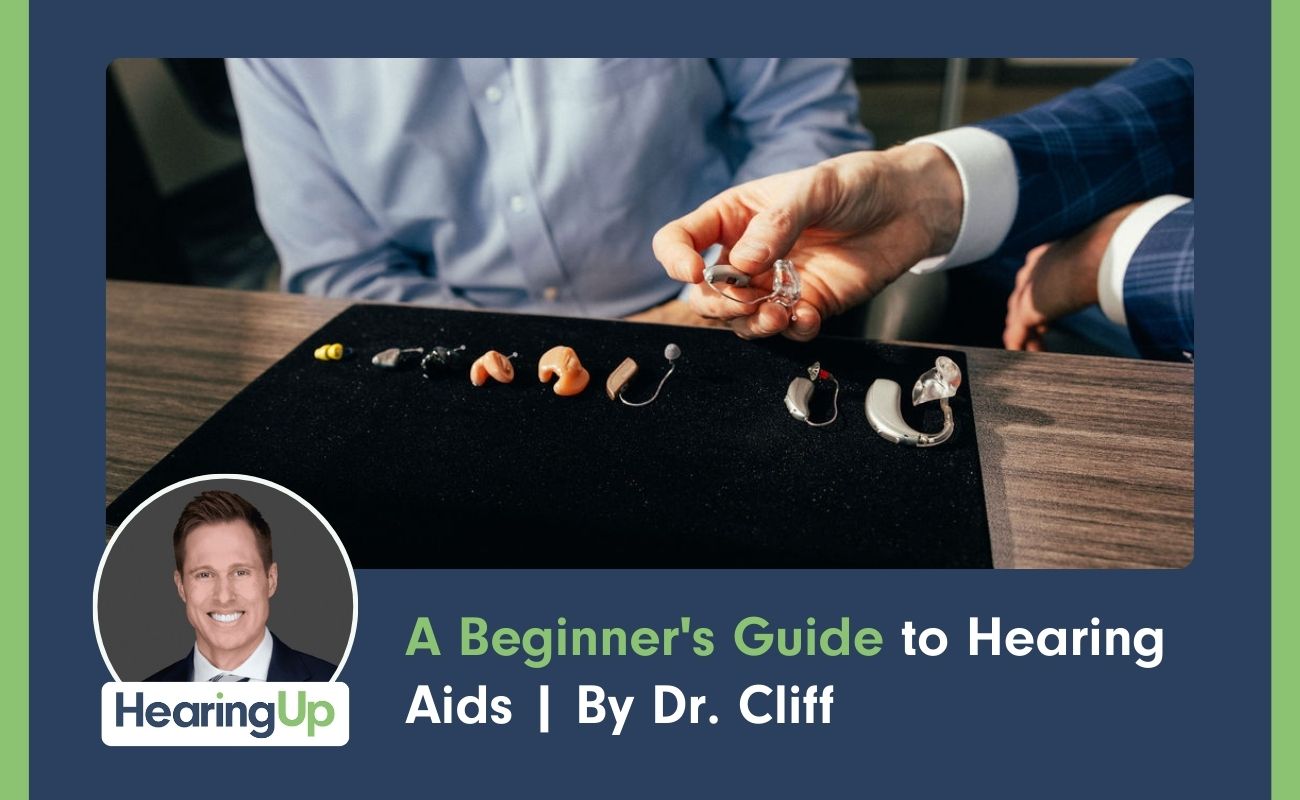
Hearing aid success requires 90-min evaluations, Real Ear Measurement programming, appropriate tech selection, 30-day adaptation and ongoing professional follow-up.
Read More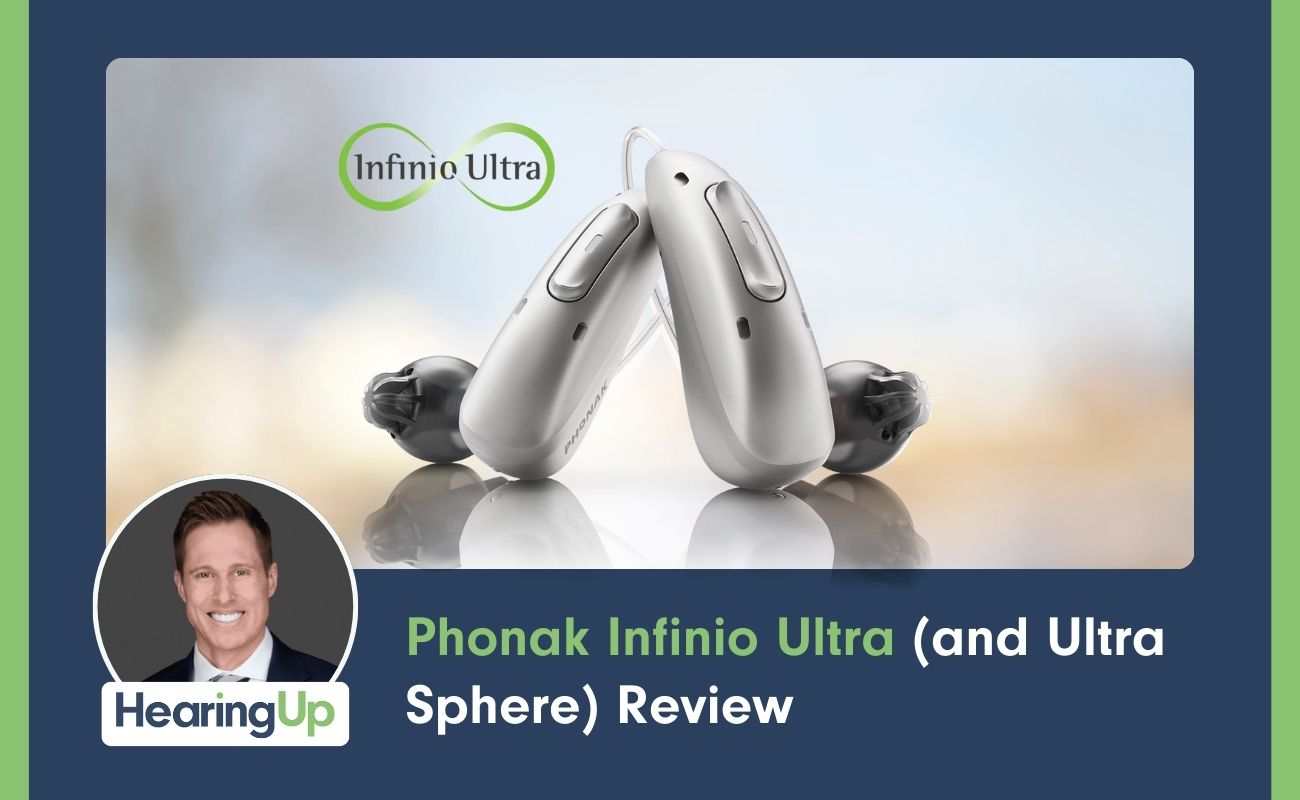
Phonak Infinio Ultra firmware adds AutoSense OS 7.0 (24% better), 30% improved battery (10hrs with AI), simplified Bluetooth pairing, and faster feedback tests.
Read More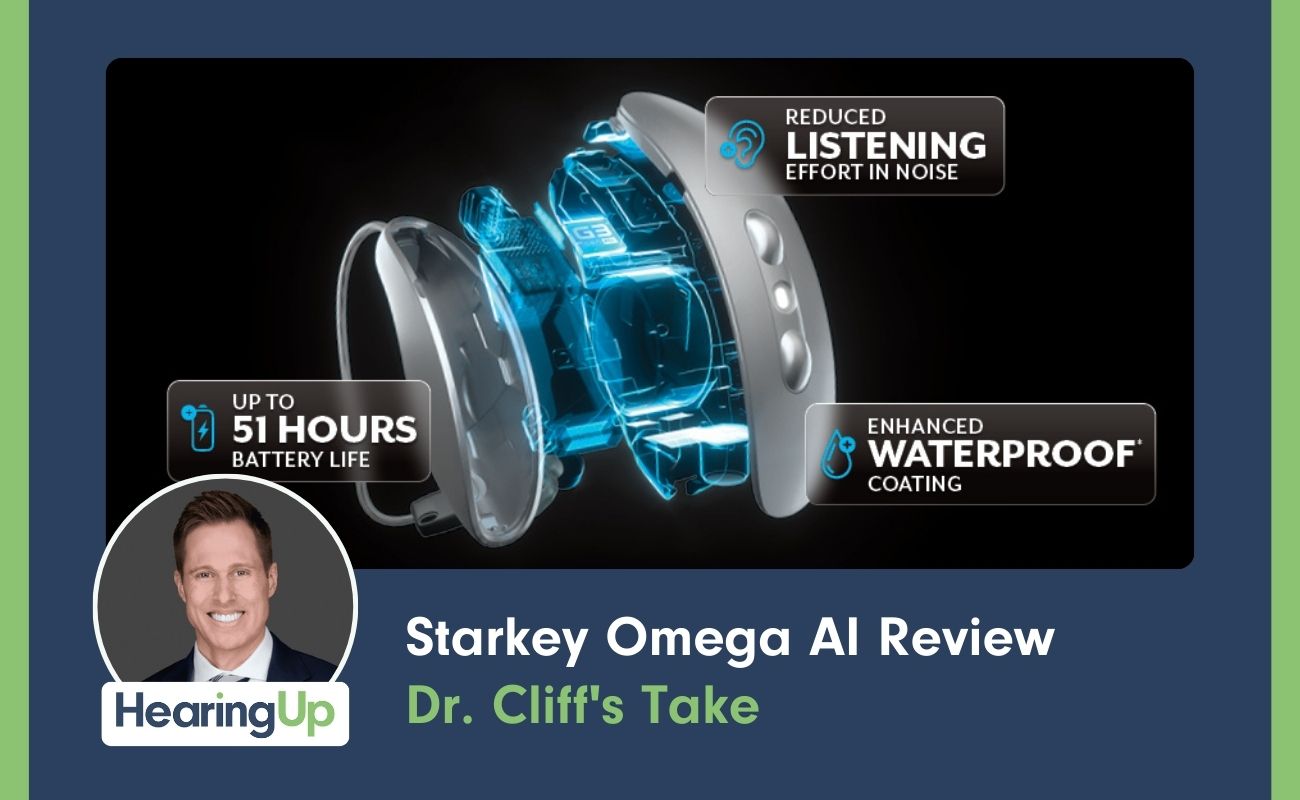
Starkey Omega AI improves on Edge AI with DNN 360 (19.6% better speech clarity), spatial awareness, find-my-hearing-aid lights, and 20x stronger custom shells.
Read More
AirPods Pro 3 with iOS 18.1+ offer clinical-grade hearing aid features for mild-moderate loss, including built-in testing, custom amplification, and audiogram uploads.
Read More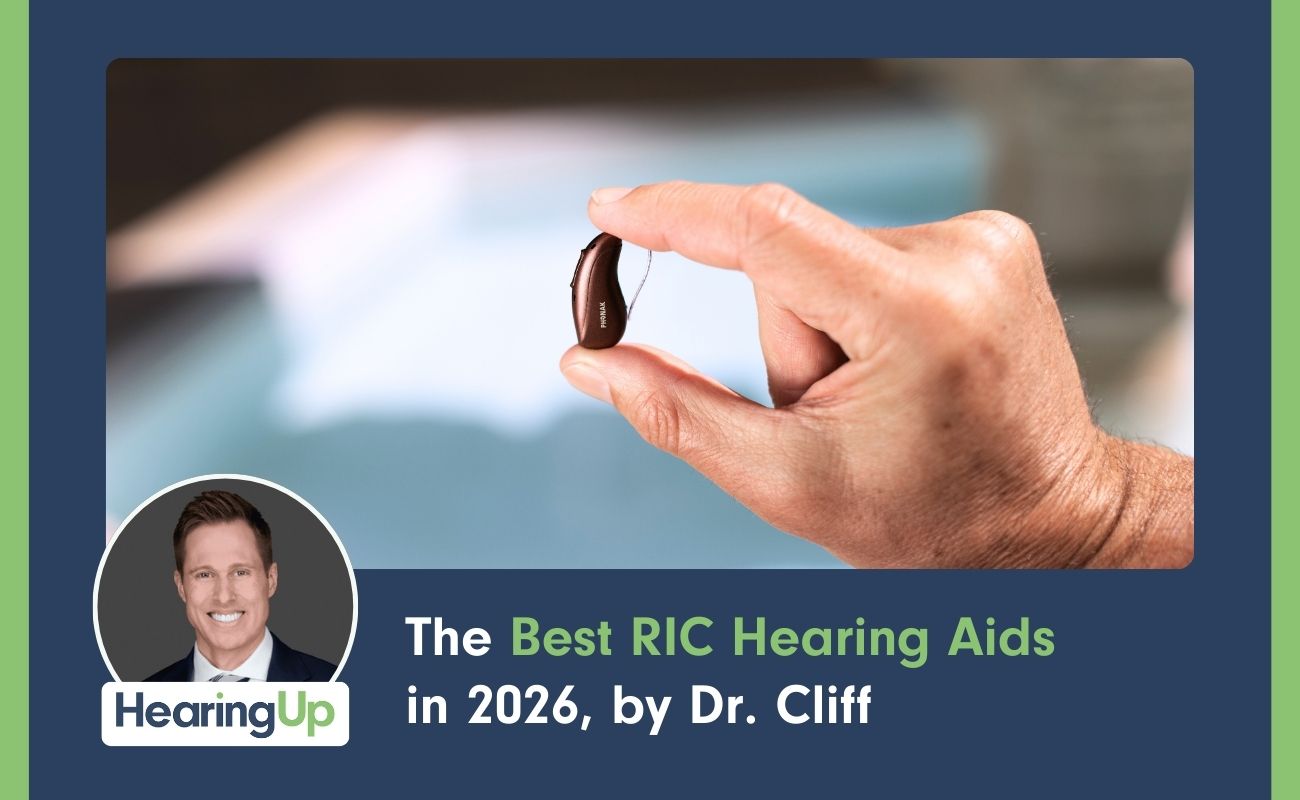
Top 2026 RIC hearing aids: Phonak Ultra Sphere Infinio (AI noise reduction), Starkey Omega AI, Oticon Intent, Signia IX, Widex SmartRIC.
Read More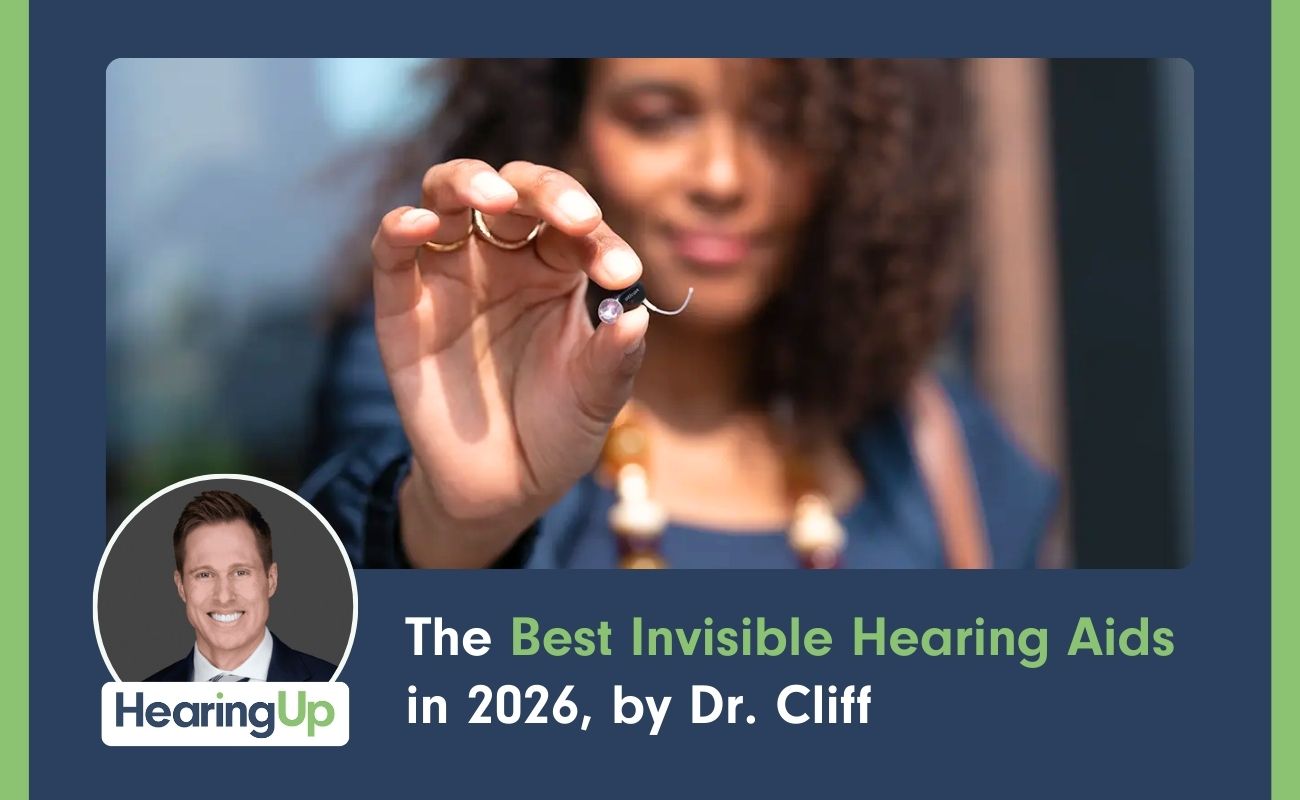
Best 2026 invisible aids: Oticon Zeal (AI/Auracast), Phonak Lyric (self-replace), Starkey IIC (minimal), Phonak Titanium (durable), Oticon Own (AI processing).
Read More